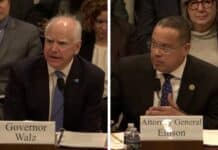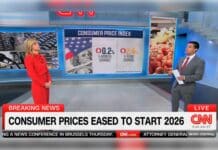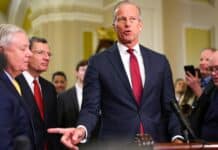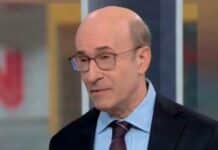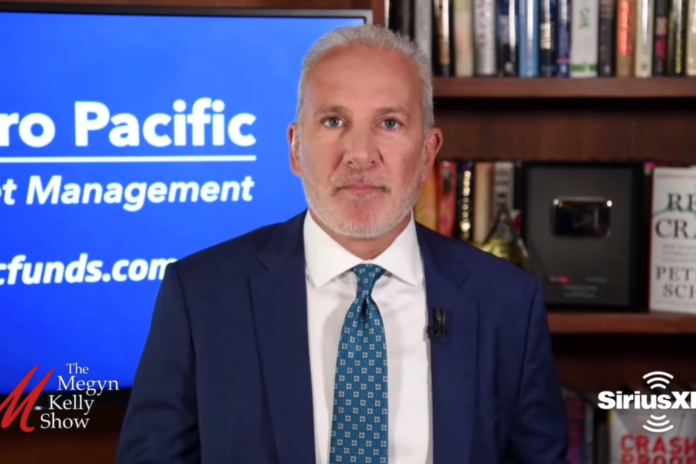
Despite government officials and central bankers continuing to peddle the “transitory” inflation narrative, the average American isn’t buying it. They feel the squeeze of rising prices in their wallets. And it’s the average American who is hurt particularly hard by the skyrocketing cost of living. Peter Schiff appeared on “The Megyn Kelly Show” to talk about how inflation really hurts working and middle-class Americans.
Even as inflation rises, the Biden administration continues to spend money at a torrid pace. The borrowing and spending will only increase inflationary pressures. Administration officials claim “the rich” will pay for all of the spending, but as Peter pointed out, this simply isn’t true.
“In fact, a lot of people who are rich end up benefitting from inflation because inflation also pushes up the value of assets that a lot of rich people own. But unfortunately, a lot of middle-class Americans don’t own those assets. They just get stuck with the bill. They earn wages, but their wages don’t rise nearly as much as the cost of living. And so, even though they get a bigger paycheck, they’re actually earning less, because when they go to spend those dollars, they can’t buy nearly as much stuff.”
Peter said that’s why inflation is the worst way to pay for government.
“It’s the most regressive form of taxation. It hits hardest those who could least afford to pay. That is the biggest problem because Biden wants to pretend we’re getting all this government for free. Nothing is free — especially government. And whenever the government pretends you’re getting something for nothing, it’s a lie. They’re just trying to win your vote. But then you don’t realize that they’re buying your vote with your own money.”
Megyn asked Peter to explain the recently announced Fed taper. Should we be glad the central bank is going to buy fewer bonds?
Peter said they shouldn’t be buying any Treasury bonds to begin with.
“That is part of the problem. They never should have bought any bonds. That was quantitative easing. But that is the mechanism for creating inflation. They print money and then they buy government bonds.”
Peter said he has a hard time believing the Fed will be able to live up to its commitment to the taper.
“As the U.S. government increases spending — and we know we’re going to get this infrastructure bill. We’re going to get this ‘build back better’ bill. They’re going to get passed. There’s not going to be nearly enough tax increases to cover the cost. So, the Federal Reserve is going to end up buying even more bonds. Even if it’s saying it’s going to buy less, it’s going to end up buying even more because that’s the only way to pay for all the spending.”
And Peter emphasized all of these spending plans will end up costing more than the government initially claims.
Megyn summed it up: the government won’t be able to tax Jeff Bezos enough to pay for all of this spending. It won’t even be able to tax the average American enough. So, it will have to turn to the Fed for more quantitative easing and money printing to pay for it. That will mean even higher inflation.
Peter emphasized that the true cost of government is what it spends — not what it collects in taxes.
“Every dollar of government spending needs to be paid for. And so, if it’s not paid for through taxation, it’s paid for through some other means, and that is inflation. And just because the Federal Reserve prints money and gives it to the government to spend, it doesn’t mean that we’re getting all that spending for free. We’re going to pay much higher prices for consumer goods. And that means Americans are going to have to reduce their spending because everything is going to cost a lot more. And since we don’t have an unlimited amount of money, people are going to buy a lot less, which is exactly what would happen if their taxes went up.”
Megyn used her 80-year-old mom as an example. Her mother is on a fixed income and it doesn’t go up. She is the kind of person who is pinched by increased prices. Peter agreed, saying people on a fixed income are hit particularly hard by inflation.
“If you’re younger and you still have a job, you can at least recover some of the inflation with higher wages … It may not be enough to completely offset the increase, but at least you get some of it back. But if you’re retired and you’re living on a fixed income, that income is not going up. But your cost of living is. And so, it’s particularly troublesome for older retired people like your mom. And I think a lot of Americans who are preparing to retire now are going to have to rethink their plans. Because there’s no way the money that they’ve saved and the income streams that they anticipate receiving are going to be sufficient given the much higher cost of living that we’re going to be experiencing. And this is not just going to be a few percent a year. We’re talking double-digit increases in the cost of living for many, many years in a row … So if your income stream doesn’t keep up, you’re getting poorer.”
This article was originally published at Schiffgold.com and was reprinted here with permission.

